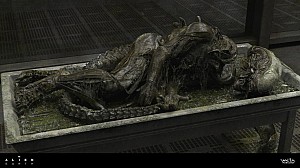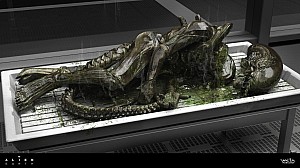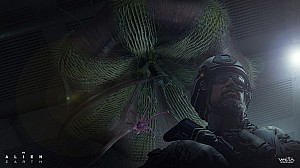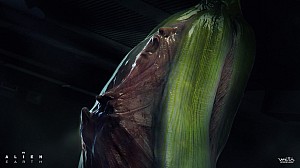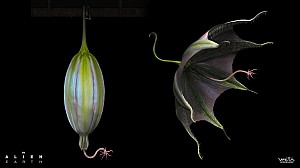This post was published by a guest. The views expressed are those of the author and do not necessarily reflect the views of alien-covenant.com.
The Alien franchise has long been heralded as a cornerstone of sci-fi horror, blending visceral terror with profound existential themes. With Alien Romulus, the series aims to push the boundaries of its legacy by exploring fresh narratives while paying homage to its roots. Directed by Fede Álvarez, this installment promises a bold continuation of the tension, fear, and philosophical undertones that have defined the saga for decades.
Alien Romulus emerges at a time when reboots and sequels dominate the industry, making its contribution to the franchise particularly crucial. Its release has reignited discussions about the enduring relevance of the Alien series, captivating both lifelong fans and new audiences eager to dissect its impact on modern cinema.
Plot and Thematic Elements
The story of Alien Romulus delves deep into themes of survival, exploring human fragility amidst overwhelming odds. It builds upon the franchise’s signature focus on existential dread, placing its characters in a harrowing struggle against both external alien threats and their own psychological turmoil.
While retaining the core elements of survival horror, Romulus introduces fresh philosophical inquiries, such as the ethics of artificial intelligence and the evolution of human identity in the face of technological transcendence. These themes set it apart as a thought-provoking chapter in the franchise’s narrative.
Character Development and Performances
The central characters in Alien Romulus are portrayed with depth and nuance, their fears and resilience brought to life by a stellar cast. Cailee Spaeny delivers a gripping performance, capturing the desperation and determination of their role, while providing a compelling counterpoint.
Particular attention has been drawn to David Jonsson whose portrayal of Andy masterfully embodies vulnerability and strength. This performance could place them in contention for awards such as Best Actor or Best Supporting Actor.
Visual and Cinematic Style
The visual elements of Alien Romulus are nothing short of breathtaking. The cinematography, helmed by Galo Olivares uses shadow and light to heighten suspense, evoking the claustrophobic terror that the series is known for.
The set design seamlessly blends the industrial grittiness of the original Alien with futuristic innovations. This meticulous attention to detail could earn the film nominations for Best Cinematography and Best Production Design.
Special Effects and Creature Design
The alien creatures in Romulus are a testament to innovative creature design. Using a mix of practical effects and CGI, the film introduces new entities that elevate the horror while staying true to the franchise’s aesthetic.
From grotesque alien textures to the eerie realism of wounds and decay, the makeup and hairstyling in Romulus deserve recognition. These efforts could secure nominations for Best Makeup and Hairstyling, alongside Best Visual Effects.
Sound Design and Musical Score
The sound design in Alien Romulus plays a pivotal role in immersing viewers in its terrifying world. Every screech, whisper, and mechanical hum is calculated to keep audiences on edge, positioning the film for a Best Sound Editing nomination.
The score, composed by Benjamin Wallfisch masterfully weaves suspense and emotion. Its haunting melodies and crescendos contribute significantly to the film’s atmosphere, making it a strong contender for Best Original Score.
Directorial Vision and Execution
Fede Álvarez brings a fresh perspective to the Alien universe while respecting its traditions. The director’s ability to balance innovation with homage ensures that Romulus appeals to both die-hard fans and newcomers.
The film’s pacing is meticulously crafted, allowing tension to build organically. This deft handling of suspense and narrative complexity positions Fede Álvarez as a potential nominee for Best Director.
Screenwriting and Dialogue
The screenplay for Alien Romulus is a masterclass in balancing philosophical exploration with visceral emotion. Dialogues resonate with authenticity, capturing the raw fear and existential contemplation of the characters.
Key scenes, such as when after Navarro is jumped by a face hugger that promptly latches onto her head, Bjorn goes to electroshock it, like he did with the face hugger that attacked Tyler. But Andy warns him that shocking the face hugger will kill Navarro, because its tail is wrapped around her neck, and it will tense up and strangle her. Instead, they resolve to freeze the face hugger, loosening its grip and allowing them to pull it off Navarro’s face (the tragic irony being that the chest burster has already been planted, so any attempt at rescue is futile)., demonstrate the writers’ ability to deliver impactful moments that linger in the audience’s mind. These strengths make the screenplay a strong candidate for Best Original or Adapted Screenplay.
Potential Nominations Across Categories
Alien Romulus stands out as an awards contender, with potential nominations in categories such as Best Visual Effects, Best Sound Design, Best Cinematography, and Best Makeup and Hairstyling. Performances by Cailee Spaeny also make a compelling case for acting nominations. The film’s achievements in storytelling, technical craftsmanship, and performance set a new standard for sci-fi horror, cementing its place as a worthy awards contender. PayPal Betting Sites offer fans a convenient way to engage with entertainment predictions especially when it comes to the Oscars, adding another layer of excitement to the awards season buzz surrounding this groundbreaking film.
Impact on the Alien Franchise and Genre Cinema
Alien Romulus reinvigorates the franchise with fresh themes and innovative storytelling, ensuring its relevance in modern cinema. Its exploration of human vulnerability and technological evolution resonates deeply with contemporary audiences.
As both a continuation and reinvention, Romulus contributes significantly to the legacy of the Alien series. Its cultural impact and critical acclaim position it as a landmark in the sci-fi horror genre. By delivering on fan expectations and pushing creative boundaries, the film secures its place in cinematic history.
This detailed exploration affirms why Alien Romulus is more than a film—it is a cultural event worthy of attention and accolades.

How Alien Movies Became a Global Phenomenon Across Every Country
Discover how alien movies conquered global cinema, influenced cultures worldwide, and continue shaping entertainment trends across every country today.

Best Alien-Themed Games To Try
Explore the best alien-themed games, from survival horror to exploration adventures.

Alien Movies in TL;DR Order: The Smartest Way to Watch the Franchise
The Alien franchise is one of the most influential in science fiction history, but for first-time viewers, it can feel intimidating. Between pr...



